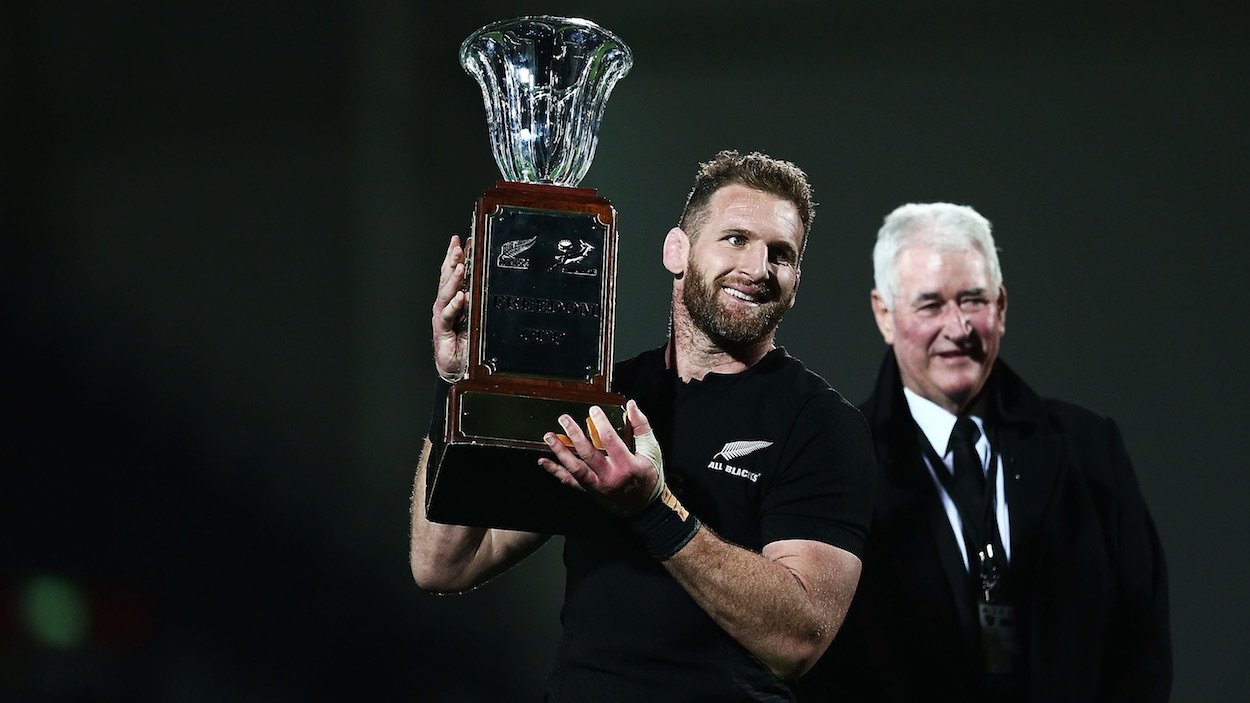The All Blacks Are Poised To Break Another Record, But Does Anyone Really Want Them To?

The All Blacks are again on the verge of breaking rugby’s record for most consecutive test wins. Deservedly so, writes Jamie Wall, but it would still be a shame to see the ’65-’69 All Blacks knocked out of the history books.
It’s that time again. For the past five years, the All Blacks have fashioned the most consistent era in professional rugby, winning 56 out of 61 games. They’ve won the World Cup, Rugby Championship, Bledisloe and any other bit of silverware going. But there’s one thing that’s eluded them, and it’s not a trophy.
The record for consecutive test wins currently stands at 17. It’s jointly held by the 1965-69 All Blacks, 1997-98 Springboks and 2013-14 All Blacks*.
In all, the All Blacks occupy six of the top 10 spots in the winning streak list. But how do the All Blacks of today stack up against the ones whose record they are on the verge of breaking? Specifically, the players who are old enough to be their grandfathers.
The late ’60s All Black side that currently shares the record has a list of names that reads like rugby royalty: Gray, Going, McCormick, Tremain, Kirkpatrick, Nathan, Lochore, and perhaps the greatest of all: Meads.
They forged their record over five big seasons. They played 18 matches in 1967 alone, and they would have played more had it not been for a Foot & Mouth Disease outbreak in the UK that meant they couldn’t travel to Ireland. Their test streak included every major rugby playing nation bar Ireland.
The current All Blacks win streak is up to 15, a run of results which has been achieved in little over a year. In that time they’ve won a World Cup and beaten all the top sides in the world (except Ireland, who have once again escaped their wrath). They’ve been stacked full of legendary players too: Carter, Nonu, Smith, Woodcock, Mealamu and, of course, McCaw.
[rugbypass-ad-banner id=”1473306980″]
2016 was supposed to be a rebuilding year after the retirement of the aforementioned legends, but it’s simply turned into a case study of how brilliantly the New Zealand rugby system has future-proofed the national side. At this point it seems less a matter of if they break the record, but how impossible they’re going to make the new record for any team that tries to beat it.
But the All Blacks have been here before – and recently. They’ve stood at the door of greatness in 2012 and 2014, only to have it slammed in their face first by England and then by Australia. Both those results came completely out of the blue, and in both cases normal transmission resumed straight away afterwards. In fact, the follow-up test against the Wallabies yielded a record scoreline.
If the All Blacks are to break the record this time it will happen at Eden Park against the Wallabies on October 22nd. Before then, the All Blacks are away to Los Pumas and the Springboks, neither of whom have given the All Blacks any trouble this year.
In the unlikely event of an upset, there will be one consolation. There’s something quite nice about having a record that harks back to a different era altogether – one with long sleeved jerseys without corporate logos on them, with proper fighting instead of grabbing collars, and mythological tales of preseason training by running up hills with a sheep under each arm.
For the current All Blacks, it might just be the only time they can lose and not get completely wrecked by the famously indignant New Zealand public.
* Though, technically, Cyprus and Lithuania both have longer win streaks…





































































